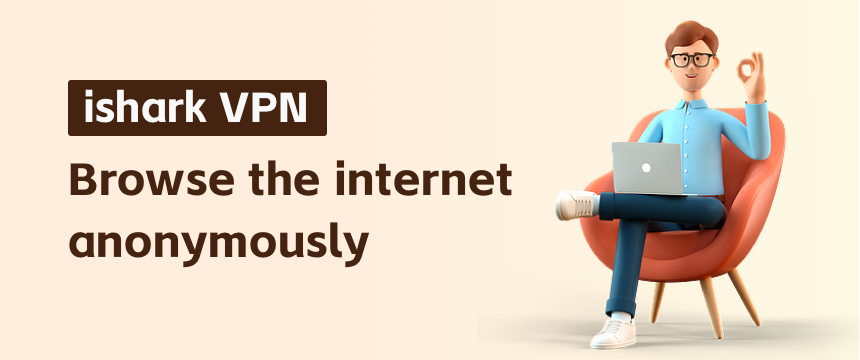VPN and Digital Identity: Enhancing Digital Identity Security and Recognition Protection
ishark blog article
As the digital age continues to evolve, the importance of digital identity has grown significantly. People engage in various online activities that involve personal information and identity.
However, this convenience of digital living also brings forth the risk of identity theft and misuse of personal information.
Fortunately, Virtual Private Network (VPN) technology provides a robust solution to enhance the security of our digital identity.
This article explores the role of VPN in protecting digital identity, ensuring users are safeguarded against theft and abuse of their digital personas.

I. How VPN Protects Digital Identity
Data Encryption: VPN employs data encryption technology to convert users' network communications into encrypted data streams, preventing hackers and third-party entities from stealing sensitive personal information, such as login credentials and credit card numbers.
IP Address Concealment: VPN can hide users' real IP addresses and replace them with the IP address of the VPN server, protecting users' geographical location and identity from being traced and recognized.
Preventing Public Wi-Fi Vulnerabilities: When using public Wi-Fi, personal information is vulnerable to attacks.
VPN encrypts the network connection when connecting to public Wi-Fi, preventing hackers from accessing user information through Wi-Fi vulnerabilities.
Multiple Identity Switching: Some VPNs offer multiple servers and options in different geographical locations, allowing users to switch between various digital identities, thereby enhancing the anonymity of their identities.
II. The Significance of Digital Identity Security
Personal Information Protection: Digital identity involves a wealth of personal information, including names, addresses, phone numbers, and email addresses. Protecting this information from theft is crucial.
Preventing Identity Theft: Identity theft is a common cybercrime where hackers use stolen identity information for fraud and illegal activities.
Safeguarding Financial Security: Digital identity security is closely related to financial security, protecting digital identity can prevent property loss and economic risks.
Maintaining Reputation and Trust: Digital identity security issues can damage personal or corporate reputations and disrupt trust relationships, making safeguarding digital identity particularly vital.
III. Choosing the Right VPN Service
Log Policy: Choose VPN services that do not keep user logs, ensuring personal information is not recorded or shared.
Data Encryption Standards: Verify that the VPN utilizes strong encryption standards, such as AES-256, to ensure the security of data transmission.
Server Coverage: Opt for VPN services with extensive server coverage, allowing users to switch identities through servers in different geographical locations.
User-Friendly Client: Prioritize VPN clients that are user-friendly, allowing easy protection of digital identity across various devices.

Conclusion:
VPN technology plays a critical role in safeguarding digital identities in the digital era. Through data encryption, IP address concealment, and public Wi-Fi protection, VPN offers an effective digital identity security solution.
The significance of protecting digital identity continues to increase, and selecting the right VPN service can help users reduce the risk of identity theft and personal information abuse while maintaining personal and corporate reputation and trust.









